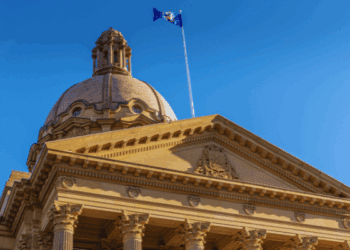November 30, 2011 – MLI author Larry Martin discusses how to reform supply management in a new op-ed published in the Guelph Mercury and Waterloo Region Record. Full op-ed below:
How to reform supply management
By Larry Martin, November 29, 2011
The news media has been rife with comments about the federal government’s decision to enter negotiations for the Trans Pacific Trade Pact (TPP). This led immediately to a call to “phase out” supply management in the dairy and poultry industries because Canada’s policy on supply management is seen as a stumbling block to better access to other countries for our export products.
That policy has been not to give up any of our tariffs (approximately 250 per cent for dairy products, 238 per cent for chicken and more than 150 per cent for turkey and eggs).
It is easy to call for an end to supply management, but hard to do. First, it assumes that the outcome of trade negotiations will be a free trade zone. Such an outcome is exceedingly rare. Most agreements give the parties more market access, not total access; lower tariffs, not none; some relaxation in technical trade barriers, not their elimination.
Second, other countries which want to be in Pacific Trade Pact have politics too. Just in agriculture alone, Japan wants to protect its rice and hog producers; the U.S. wants to protect its sugar, dairy and peanut growers, etc. And pact is unlikely to remove all technical barriers.
The likelihood, then, is that a trade agreement will not result in pure free trade, but only freer trade.
The question for Canada is whether supply management has value for us and, if so, how much. In other words the issue is most likely not the status quo or abolition, but reform. Can the industries under supply management make changes and survive in Canada without 150 per cent to 250 per cent tariffs?
The answer is yes: no one else in Canadian agriculture enjoys anywhere near this much protection — although most others have some type of safety net. How might supply-managed industries — and their cost to taxpayers and consumers — be brought into line with their peers in Canadian agriculture?
There are benefits to supply management. Since its inception, prices for supply-managed commodities have been stabilized and raised; that has made quota-holders better off. But there have been criticisms too.
For example, the price of supply-managed commodities tends to rise relative to the world market price, because our prices do not adequately reflect global structural or technological changes that reduce costs. Our farmers have little incentive to match such improvements and fail to adjust to changing circumstances.
Because quota owners benefit from price-fixing for their commodity, the price of quota is quite high. This raises costs in supply-managed industries and is a barrier to people getting into the business. Currently, quota values for dairy are $25,000 to $30,000 per cow and for eggs $200 per hen. So modest start-up operations of 100 cows or 10,000 hens would need to invest $2 million to $3 million in quota alone, before buying the land, buildings, equipment and livestock.
Finally, supply management tends to throw up barriers to new products, and hence innovation. If new producers want to develop, say, an organic product market, they face the additional cost of market development as well as the cost of production. But they must compete with producers of non-organic milk for quota. This puts innovators, especially those with limited capital, at a competitive disadvantage.
So if a trade agreement requires us to lower tariffs on eggs, dairy and poultry, how can we help those supply-managed industries to adjust?
We could, for instance, change the way these commodity prices are calculated to reward efficiency. Right now, prices or pricing formulas are based on the average costs of all the producers except the 10 to 25 per cent least efficient. In other words, a sample of producers’ costs is taken, the highest-cost 10 to 25 per cent of producers are eliminated from the calculation, and costs of the remaining 75 to 90 per cent form the basis for pricing decisions. If we set prices based on the average costs of the most efficient 25 per cent of producers, the incentives to innovate and compete would be strongly increased.
To overcome the problem of barriers to entry and to innovation, we could set up different classes of quota, with appropriate price differences, to encourage the entry of new producers with new ideas and products to offer.
Very few people in Canadian society enjoy as much protection from competition as dairy and poultry producers. Supply management results in high and stable prices for these producers, but at the cost of high prices for consumers and annoyed trade partners shut out of our markets. Annoying trading partners means reduced export opportunities for the 90 per cent of Canadian farmers not in supply management. And many of them are becoming annoyed too. The stability of supply management can be preserved even with freer trade in agriculture while fostering innovation and lowering the cost to consumers. We just have to ask the right questions.
Larry Martin is the lead author of Hungry for Change, recently released by the Macdonald-Laurier Institute, www.macdonaldlaurier.ca. He is a senior research fellow at the George Morris Centre in Guelph.




